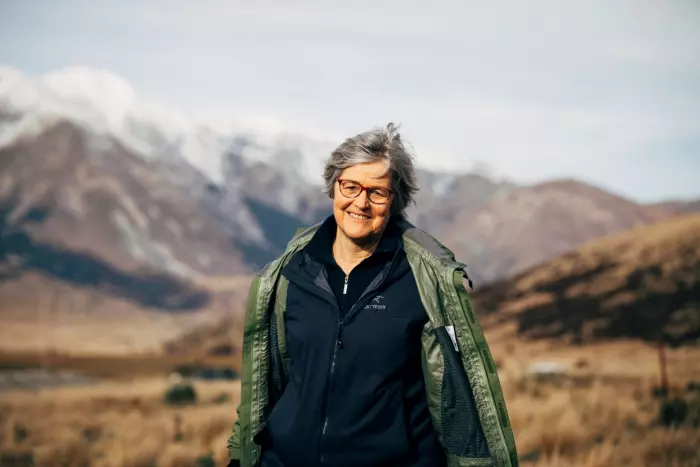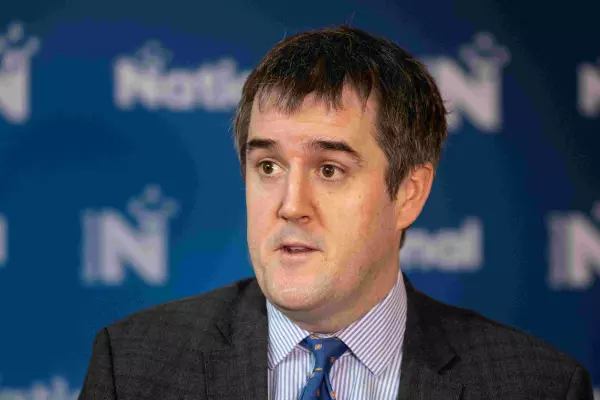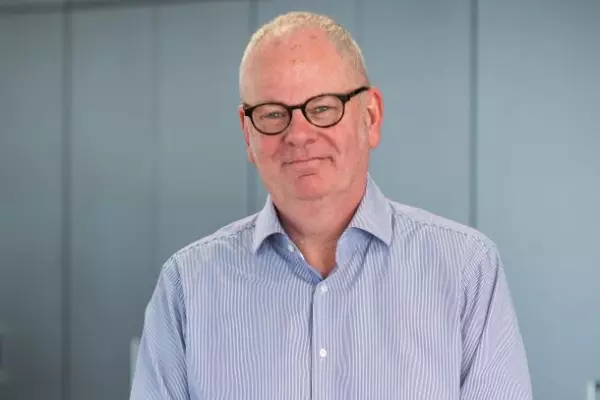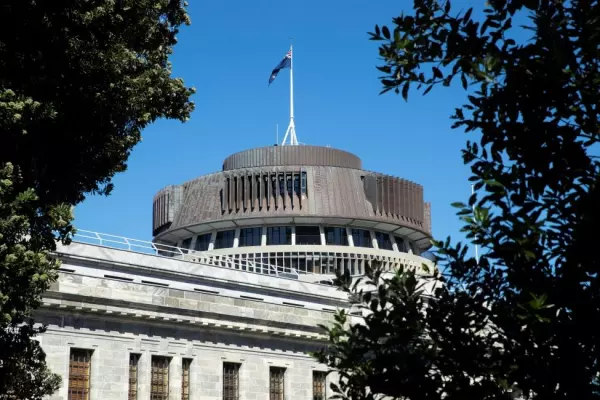As part of its How good is our public sector? series, BusinessDesk is interviewing former ministers about the crucial relationship between politicians and public servants. Oliver Lewis talks to former conservation minister Eugenie Sage.
It was called ‘tahr-mageddon’. Before 2018, few people outside hunting and outdoors circles would have known or cared about Himalayan tahr, an imported goat species with an appetite for native fauna.
That all changed when the then conservation minister, Eugenie Sage, started pushing Department of Conservation (DOC) officials to comply with a statutory control plan limiting tahr numbers to 10,000 on the conservation estate. DOC hadn’t been resourced properly to fulfill its role, Sage says, so the tahr population had exploded to about 35,000.
Sage knew there would be backlash to the proposed cull, from hunters in particular, but she hadn’t anticipated how extreme it would be. For directing and funding officials to do their job, she received multiple death threats. It was, Sage says, probably the worst experience of her ministerial career.
“It was pretty unpleasant,” she adds with apparent understatement.
Sage, a Green MP who first entered parliament in 2011, was from 2017 to 2020 minister in charge of DOC and Land Information New Zealand (LINZ) – agencies responsible for managing more than a third of the country. As associate environment minister, she also had responsibility for the waste sector, embarking on numerous reforms including a ban on single-use plastic bags.
Officials in the waste team at the Ministry for the Environment weren’t sold on the idea when she first raised it, Sage says. “Somebody actually guffawed.” Plastic bags made up such a small part of the waste stream that, for officials, it didn’t rank as a priority. It was more a symbolic change, Sage says, and both she and prime minister Jacinda Ardern wanted it to happen.
Other priority projects, though, weren’t nearly as successful. As conservation minister, Sage had wanted to see a dryland park established in the Mackenzie Basin. She secured funding through a budget bid, but officials failed to deliver on the intended vision. “It was a disaster,” Sage says (an external review commissioned by DOC reached much the same conclusion), although she says she could have pushed officials harder.
Step aside, middle managers
Sage has some frank advice for policy advisors when it comes to providing clear and succinct advice: read Owen Marshall, a New Zealand author noted for his clear, precise prose. All too often, policy papers were difficult to interpret and full of jargon, she says (Labour MP Rachel Boyack recently put forward a plain language bill requiring officials to communicate clearly).
Public servants also have a tendency to second-guess what ministers might want, Sage believes – they carry out their own risk assessments of what’s politically possible, meaning ministers don’t get to see a full range of options: the good, the bad and the ugly.
“There's a whole level of middle management which makes the public sector much less courageous and ambitious than it could be,” Sage says.
“I would say ‘just give me the options and give me your analysis of each of them the good and the bad – and let the decision be made at the political level’.”
When she was minister, Sage had a good relationship with the then DOC director general, Lou Sanson. Mutual trust meant Sage could approach staff in regional field offices and other junior DOC staff directly. Other chief executives, she says, might not be comfortable with that because of the honesty and frankness frontline staff might deliver to ministers.
As problems get relayed up the chain, Sage believes advice gets increasingly bland and neutered. Asked if she always received free and frank advice, she replies emphatically: “no”.
“I think that level of middle management needs to get out of the way sometimes so you’re getting that honesty from people on the ground who are actually dealing with it.”
Implementation troubles
When she took over the conservation portfolio, Sage made it a clear she wanted DOC to prioritise biodiversity over tourism. To that end, she secured $181 million in operational funding in Budget 2018 with an explicit expectation it go towards boosting frontline operations. Sage was dismayed by how much also went on hiring staff in Wellington.
The Green MP raises the anecdote as an example of implementation issues within the public sector. Agencies are reviewed annually by select committees, but Sage doesn’t think there’s sufficient focus on tracking spending and programme delivery to ensure things are getting done.
“You need to get people confident that they can conceive a project, a policy, and then actually deliver it and build the practical ability to do that.”
When she became associate environment minister, Sage says a number of groups lobbied her to review the waste strategy. She declined. It was more important, she thought, to get runs on the board first by undertaking a range of reforms, including expanding and increasing the waste levy, introducing product stewardship schemes and working with councils to improve their recycling capabilities.
To coordinate this workstream, a project manager within the waste team at the environment ministry tracked the various programmes on an A3 poster. A simple measure, sure, but Sage says the visualisation, which was updated to reflect milestones, helped enormously. It kept people focused and made them realise how their work related to the overall strategy. Having people with a practical bent work alongside policy teams would help the public service be more effective, Sage suggests.
To help overcome implementation issues, the public service needs a few more people with that sort of engineering background, or people who problem solve and know how to get things done, she says.
Outsourcing and compliance
Figures compiled by the Public Service Commission show public service agencies spent about $975m on contractors and consultants in 2019/20, up 6% on the 2018/19 spend of $923m.
Sage is understanding about the need to contract out some services, but says important work, particularly policy-related, should be done by public servants. Consultants advise other clients, not just the government, so relying too heavily on their input for major reforms risks real or perceived conflicts of interest, Sage believes.
“The public service should have the intellectual grunt in-house and be able to call on specialist advice,” she says.
When she became minister, LINZ was taking a hands-off approach to managing its huge land holdings, she says – for example, contracting out oversight of pastoral leases to property companies and consultants.
“You had an agency that was totally distant from the lands that it was responsible for managing,” Sage says. She pushed to change that, leading to LINZ taking on more staff and carrying out regular field visits.
Parliament is good at passing laws requiring compliance, monitoring and enforcement, Sage says, but without adequate resourcing the responsible agencies can’t properly carry out their functions.
More acceptance of failure
To help tackle big, systemic issues like the housing crisis and climate change, Sage believes officials need to get better at being much more frank and offering bold advice. Ministers need to make sure things are happening within their departments, but there also needs to be more internal checks to make sure things are being delivered.
Sage can see why officials don’t always feel comfortable speaking frankly. If ministers are intolerant of contrary views, or they just act badly, she says public servants might feel the need to curtail their advice. Public sector culture can also be too risk averse, Sage believes, in part because perceived failings are endlessly raked over in the media.
“If you’re in the maelstrom it can be, particularly for public servants, quite debilitating. People want to avoid that,” Sage says.
“I think there’s got to be a greater acceptance of failure, too.”















